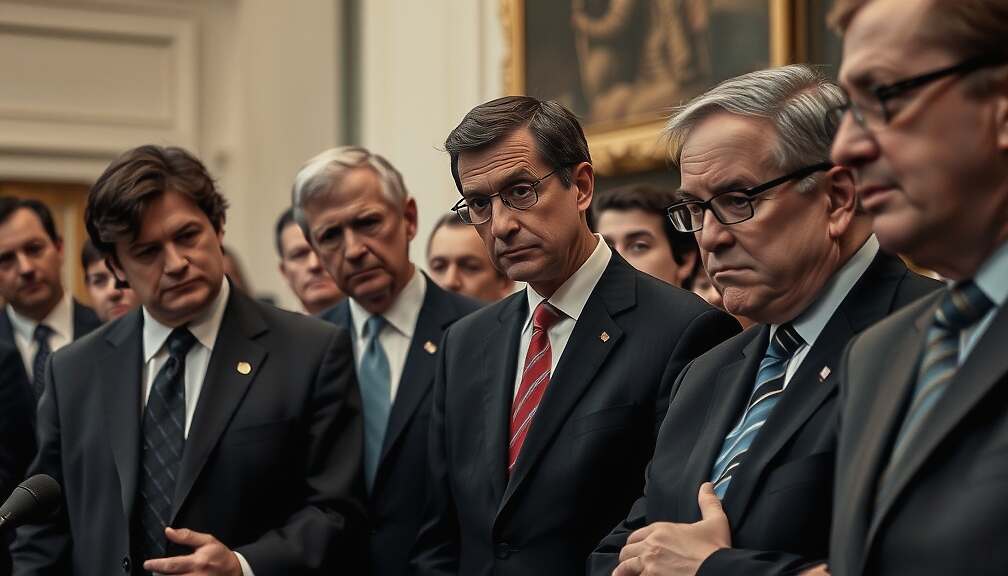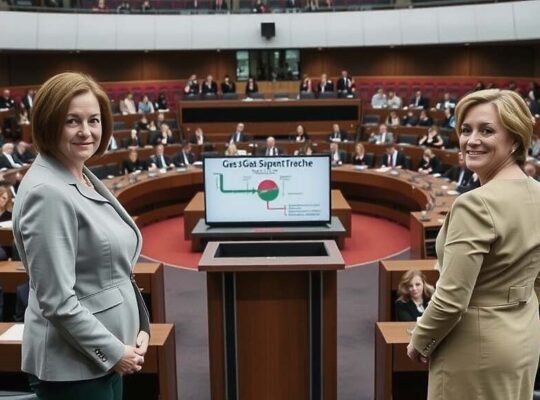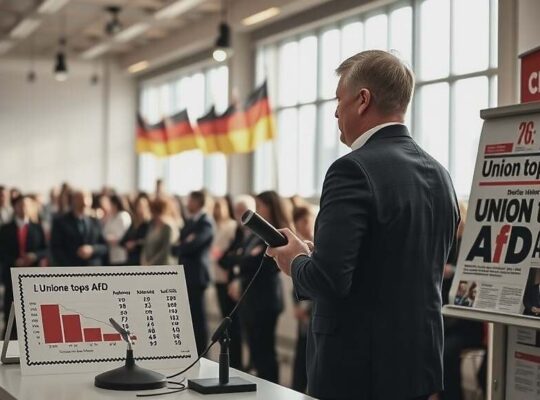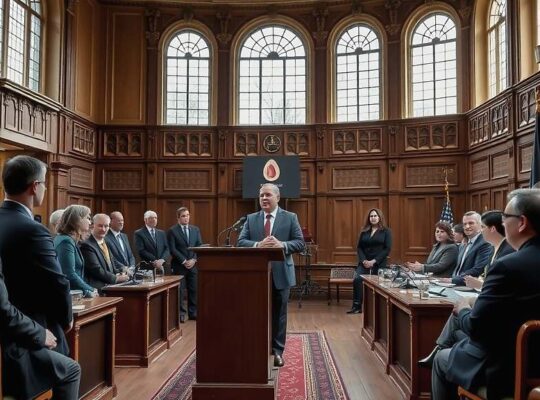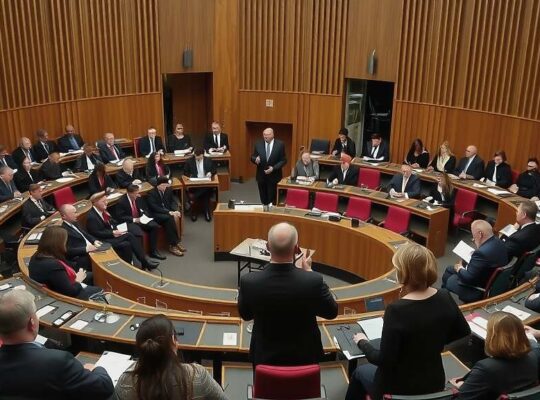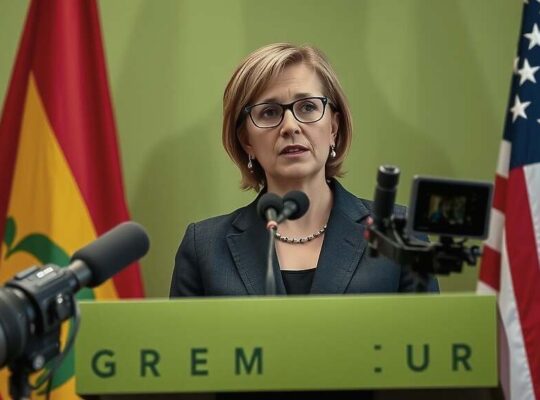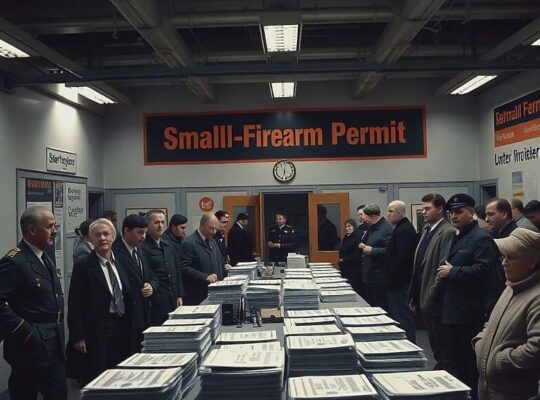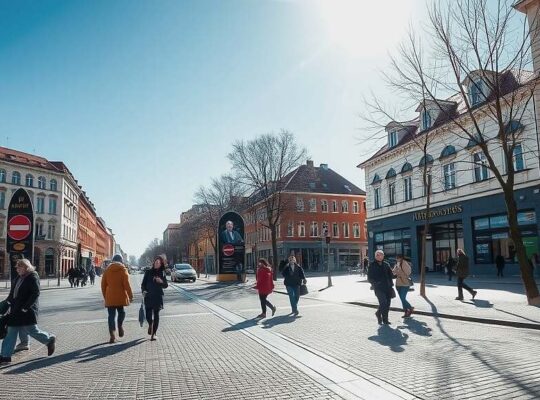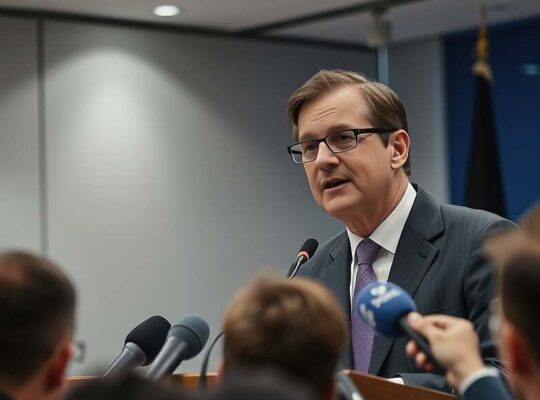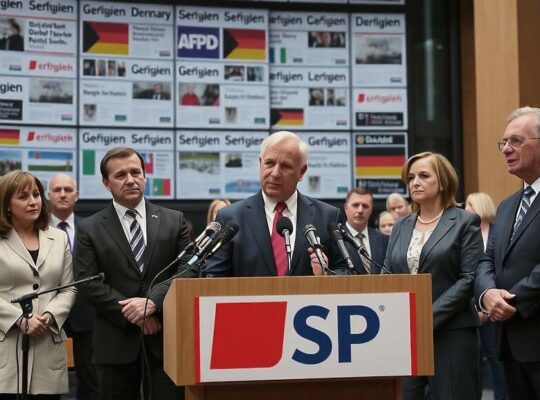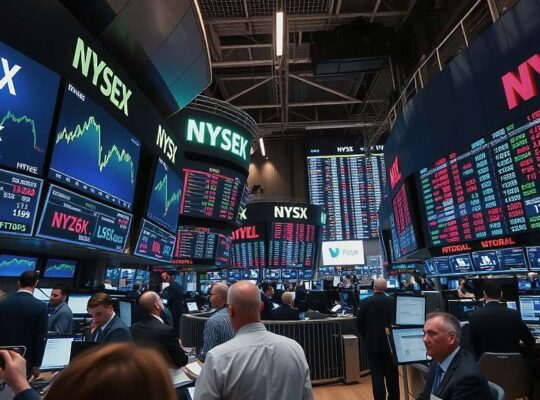Surging support for the Alternative for Germany (AfD) party has prompted reactions of concern from politicians within the Christian Democratic Union (CDU) and the Social Democratic Party (SPD). Sebastian Roloff, SPD parliamentary group’s spokesperson for economic policy, expressed his shock at the party’s recent polling numbers in an interview with the Handelsblatt newspaper, stating that the high level of support “is unsettling”. He attributed the situation to widespread public discontent and anxiety regarding the future.
Roloff emphasized the political responsibility to restore optimism among citizens, highlighting the need for an economic upturn as a key priority. He asserted that policymakers must actively work toward achieving this.
CDU politician Dennis Radtke, head of the party’s worker’s wing, described the situation as a “massive crisis of confidence” in democratic institutions. Radtke stressed the importance of effective communication, responsible expectations management and careful selection of policy priorities from political leaders.
Radtke pointed out that migration has increasingly become a focal point for frustrations related to broader societal challenges. He noted that economic struggles, rising rents, unaffordable property ownership and stagnant incomes are significant drivers of public dissatisfaction. He cautioned that failure to address these issues will have serious repercussions in upcoming elections, particularly in eastern Germany.
Recent polling data from the Allensbach Institute confirms the AfD’s significant gains, with the party now reaching historical highs. Previous surveys from other institutions had also reported record support for the AfD. The growth is most pronounced in eastern Germany; a recent Infratest Dimap survey conducted for the NDR indicates that the AfD is currently polling at 38% in Mecklenburg-Vorpommern, significantly exceeding their performance in the 2021 state election. The SPD, currently led by Minister-President Manuela Schwesig, is projected to receive 19% in the same poll, while the CDU is at 13%.


